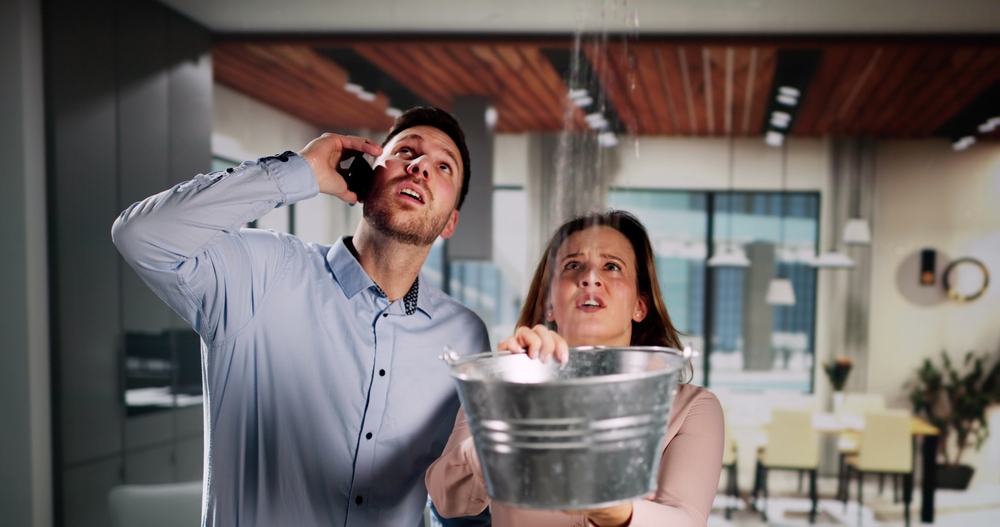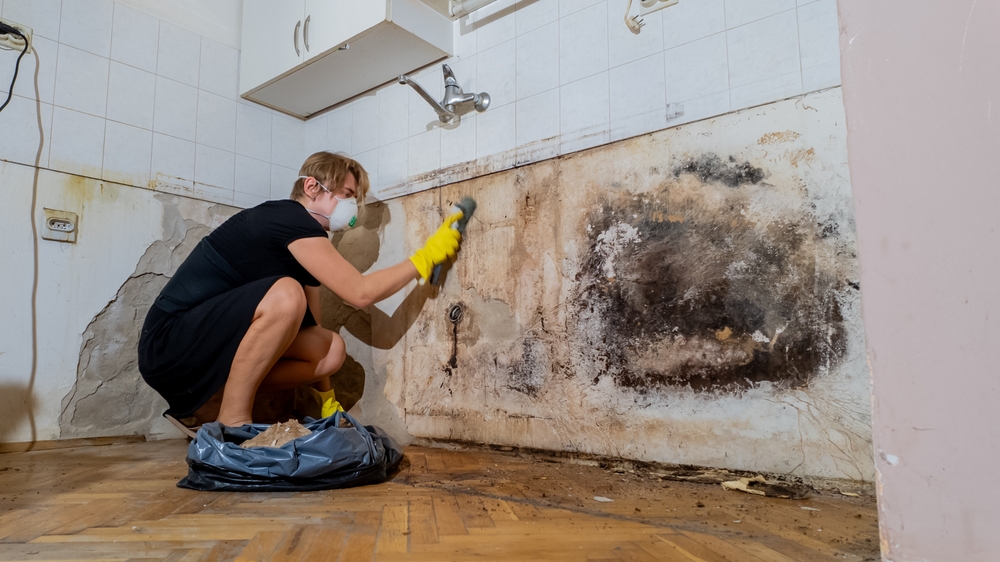Among the most often occurring problems Philadelphia’s homeowners, renters, and business owners deal with is water damage. Older structures, shifting weather patterns, and outdated infrastructure combined in the metropolis render properties especially prone to water-related issues. When water damage strikes, it can interfere with daily life, result in major financial losses, and, if addressed improperly, expose health risks.
This article offers a detailed analysis of the most likely water damage situations in Philadelphia, doable preventative measures, and concrete recommendations on response. Understanding the hazards and knowing how to respond will help you to safeguard your home and lessen the effects of water damage.
Understanding Water Damage in Philadelphia
From internal problems like bad plumbing to natural disasters like floods, water damage can come from many causes. Philadelphia’s age of its buildings and exposure to severe weather disasters set it apart.
- Why It’s a Common Problem: Many Philadelphia houses and businesses were constructed decades ago with antiquated plumbing systems and roofs more prone to damage. The city also gets a lot of rain, snow, and sometimes hurricanes, all of which could aggravate water damage hazards.
- The Consequences of Delay: The Results of Delaying Ignoring water damage can cause structural damage, mold development, and higher repair expenses. One must act quickly.
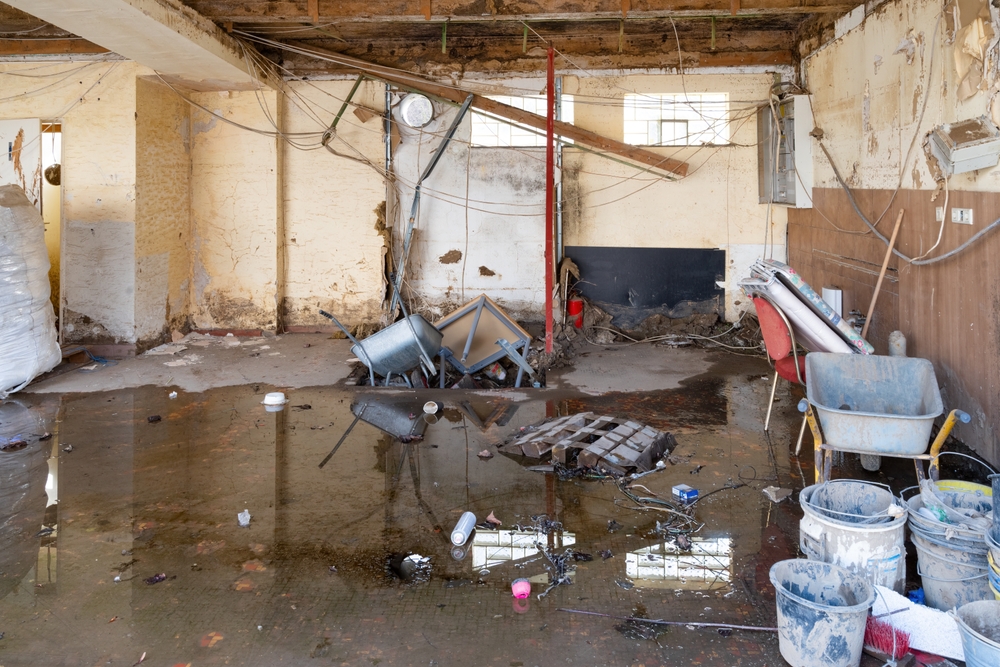
Common Water Damage Scenarios in Philadelphia
Let’s investigate the most common sources of water damage in Philadelphia and ways you might avoid them.
Plumbing Issues
Leaky Pipes
Especially in older Philadelphia houses, leaky pipes are a main source of water damage. Typical causes are freezing-related damage, pipe misalignment, or corrosion.
Signs to Watch For:
- Watermark stains on walls or ceilings.
- Clearly a decline in water pressure.
- Unaccounted for rises in your water bill.
How to Prevent Leaks:
- Look at pipes often for damage or corrosion.
- Plan yearly plumbing inspections.
- To stop freezing, wrap pipes in insulation in winter.
Clogged Drains
Clogged drains go beyond a little annoyance. They can cause flooring and walls to be damaged as water spills from toilets, bathtubs, and sinks.
Prevention Tips:
- Install drain covers to gather soap scum or trash including hair.
- Since grease or oil hardens with time, steer clear of pouring it down the drain.
- Before minor blocks aggravate, clear them with a monthly drain cleaner.
Burst Pipes
Philadelphia is Winter can be difficult; frigid temperatures run the danger of pipe rupture. Widespread damage can result from a ruptured pipe releasing hundreds of gallons of water.
How to Mitigate Risks:
- Under sinks, open cabinets doors to allow warm air flow.
- To keep water flowing on frigid evenings, let faucets drip just barely.
- If you spend a lot of time away in winter, turn off the main water valve for your house.
Roof Leaks
Another common problem in Philadelphia related to the seasonal storms and aging of the roofs is roof leaks.
Common Causes of Roof Leaks:
- shingles either damaged or absent from storms or strong winds.
- Clogged gutters allowing water to gather and seep onto your roof.
- Worn flanking vents or chimneys.
How to Spot Roof Leaks:
- Look for ceiling water stains or discolouration.
- Around vents or skylights, look for peeling paint.
- Look for mold or moist insulation in your attic.
Preventive Roof Maintenance:
- Especially in the fall, at least twice a year clean gutters.
- Cut tree branches close to your house so they won’t ruin your roof.
- Plan yearly expert roof inspections to spot early deterioration.
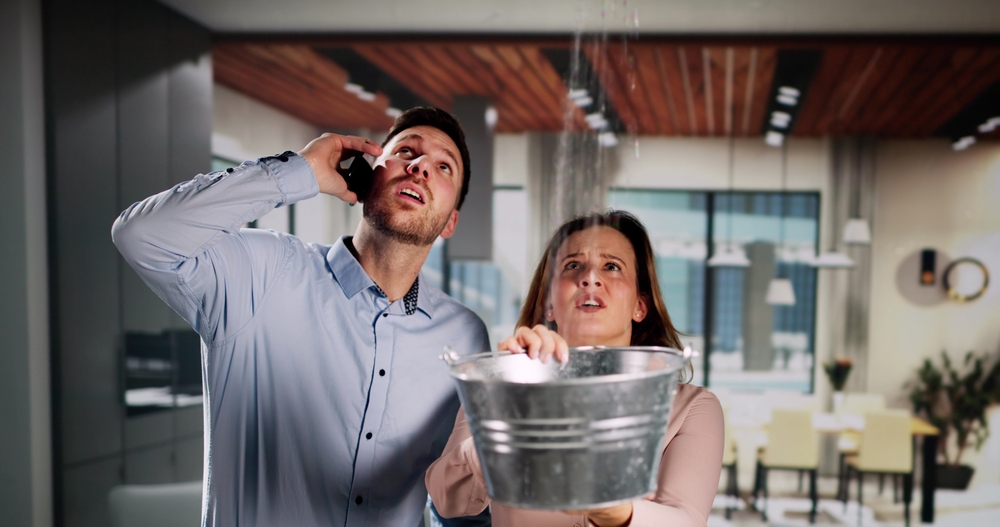
Appliance Malfunctions
Unexpected breakdowns in appliances such dishwashers, washing machines, and water heaters can cause major water damage.
Water Heaters
Older versions of water heaters in particular might produce leaks from pressure or rust.
Prevention Tips:
- Look around your water heater for corrosion or puddles.
- To clear sediment, drain and flush the tank once a year.
- Depending on its condition, replace your water heater every eight to twelve years.
Washing Machines
Because of worn hoses or incorrect installation, washing machines can damage water supplies.
How to Avoid Issues:
- Stainless steel braided hoses should replace rubber hoses.
- Every six months check connections for tightness.
- Maintaining balance in your machine will help to lower vibrations that could loosen connections.
Dishwashers
Usually caused by overloading, damaged seals, or clogged drains, dishwasher leaks are seen in
Maintenance Tips:
- Overloading your dishwasher will strain the seals.
- Look at the door seal for wear; if needed, replace it.
- To stop obstructions, routinely clean the dishwasher filter.
Flooding
Philadelphia is not unfamiliar with floods, especially in low-lying regions or during heavy rain.
Flash Floods
Little warning is needed for flash floods to strike and fast water accumulation results.
Precautions to Take:
- To get real-time flood warnings, keep a weather alert app open.
- If your house falls in a high-risk zone, install flood barriers around it.
- Raise priceless objects from the earth in your storage or cellar.
Sewer Backups
Philadelphia’s sewer systems can be overwhelmed by heavy rain, resulting in backups that let toxic water into residences.
Prevention Strategies:
- Steer clear of flushing non-flushable things include feminine hygiene products or wet towels.
- Annually get your sewer pipes checked and cleaned.
- Put in a backwater valve to stop sewage from entering your house.
Basement Flooding
Given their below ground level position, basements are especially prone to water damage.
How to Protect Your Basement:
- Seal floor and basement wall fractures to stop water access.
- Put in an emergency backup battery sump pump.
- Stow items kept in the basement in waterproof containers.
How to Handle Water Damage
Reacting fast when water damage strikes can save money and time. Here is what to follow:
Immediate Actions
- Turn Off the Water Supply: Shut off the water source. Should plumbing cause water damage, find and turn off the main water valve.
- Remove Standing Water: Remove extra water with towels, mops, a wet/dry vacuum.
- Prevent Mold Growth: Let windows open and use dehumidifiers or fans to completely dry the space.
Document the Damage
- Take Photos: Document the degree of damage including personal belongings, flooring, and impacted walls.
- Inventory Damaged Items: Make an exhaustive list of your damaged items together with their expected worth.
File an Insurance Claim
- Contact Your Insurer Promptly: Tell your insurance carrier about the damage and do as advised.
- Understand Your Policy: See if your coverage addresses the particular kind of water damage you have gone through.
- Provide Documentation: Send pictures, the inventory list, and any more needed proof.
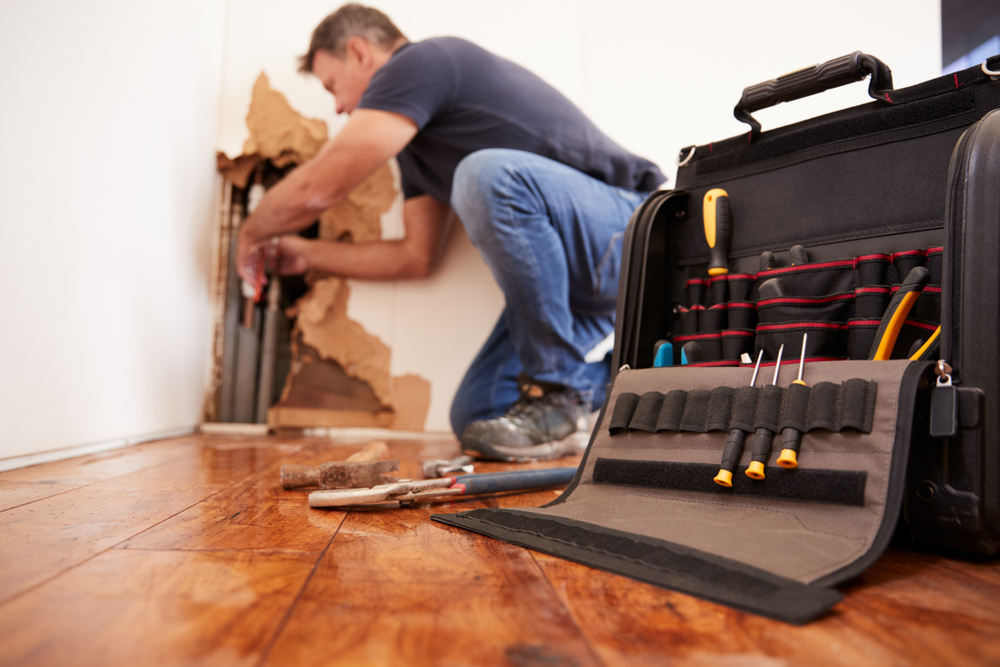
Call a Professional Water Damage Restoration Company
Often severe water damage calls for expert assistance to guarantee total recovery.
When to Hire Professionals:
- If the damage includes sewage or contaminated water.
- When mold is suspected or actual.
- For structural damage needing specific repair.
Choosing the Right Company:
- Search for businesses validated by the Institute of Inspection, Cleaning, and Restoration Certification (IICRC).
- Ask references and review consumer comments.
- Verify they offer a thorough work estimate and schedule.
Preventive Measures to Minimize Water Damage Risks
Better still than treatment is prevention. These long-term plans help to reduce water damage risk:
- Regular Inspections: Annually get your appliances, roof, and plumbing checked to find problems early on.
- Emergency Preparedness: Make a household emergency plan including turning off the water supply and calling a professional restoration company.
- Upgrade Your Systems: Modern plumbing fittings, a sump pump, or flood barriers could all be worth investing in for further protection.
Conclusion
Although Philadelphia residents have great worry about water damage, it is not insurmount. Understanding the common causes, implementing preventative care, and acting fast when damage results will help you to protect your property and save expensive repairs.
Minimizing water damage depends mostly on early identification and quick response. Should water damage strike your house or business, don’t hesitate to contact experts such as Pennsylvania Restoration Services. Here we are to assist in restoring your property and mental clarity.
Call us right now for professional help or to set up a consultation. Working together, we can guarantee that your house stays dry, safe, and free from further water damage!
Philadelphia Restoration Services
https://www.google.com/maps?cid=3399342399556699153
+1 267 668 0013
https://philadelphiarestorationservices.com/

